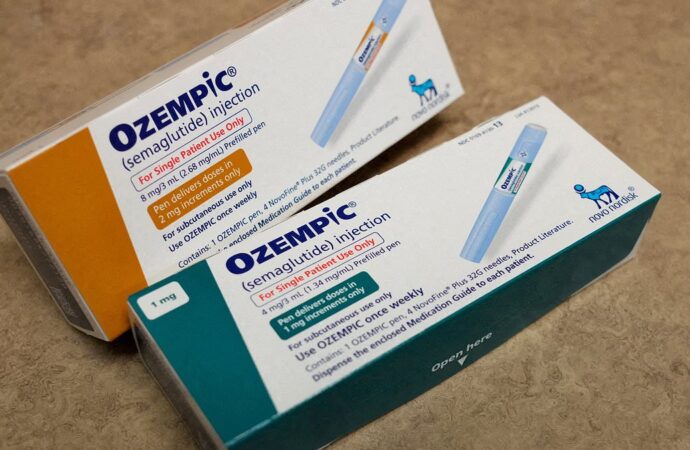The national shortage of weight loss drugs for teenagers is causing NHS doctors to ration the medication, leading to concerns about the use of Ozempic, a type 2 diabetes treatment, as a “lifestyle” drug for weight loss.
In recent years, there has been a surge in private prescriptions for Ozempic, a medication primarily used to treat type 2 diabetes. People are reportedly paying exorbitant prices, upwards of £700, for a three-month supply of the jab in an attempt to shed extra pounds. This trend has been fueled by celebrities such as Elon Musk and Kim Kardashian, who have touted the drug as a weight loss solution.
However, this increase in private prescriptions has resulted in a national shortage of weight-loss jabs for dangerously obese children. NHS doctors are now forced to ration the medication, leaving parents of obese children as young as 11 to reduce their dosage and make their supplies last longer.
Doctors are legally allowed to prescribe Ozempic “off label” for weight loss if they believe there is a clinical need. However, this off-label use has raised concerns among experts who argue that the drug should be reserved for its intended purpose of treating type 2 diabetes. They warn that using Ozempic as a “lifestyle” drug could have unintended consequences and may not address the underlying health complications associated with obesity, such as sleep apnea and diabetes.
To address the shortage, a weight loss jab specifically designed for this purpose, called Wegovy, has been approved in the UK. However, the demand for weight loss medication is outstripping the supply, exacerbating the problem.
Several hundred morbidly obese teenagers in the UK are currently prescribed weight-loss jabs due to serious health complications. These complications include severe sleep apnea and type 2 diabetes, with all patients having a body mass index (BMI) of at least 30 and some as high as 40. The medication, in combination with diet and lifestyle changes, is expected to help these teenagers shed up to 3st (approximately 42 pounds) over a two-year period.
The shortage of weight loss drugs is a significant concern for the 21 specialist hospital clinics for obese children funded by the NHS. Professor Julian Hamilton-Shield, an expert in diabetes and endocrinology at Bristol University and clinician at Bristol Royal Hospital for Sick Children, highlights the challenges faced by these clinics due to the shortage. He explains that they are now instructing patients to reduce their medication dosage to make it last longer, but there is no certainty regarding when new supplies will become available.
In conclusion, the national shortage of weight loss drugs for teenagers is causing NHS doctors to ration the medication, leading to concerns about the use of Ozempic as a “lifestyle” drug. While the drug has shown positive results in addressing complications associated with obesity, such as type 2 diabetes and sleep apnea, its off-label use for weight loss raises ethical and medical questions. The approval of Wegovy offers a potential solution, but the demand for weight loss medication continues to outstrip supply, leaving obese children and teenagers in a precarious situation.









